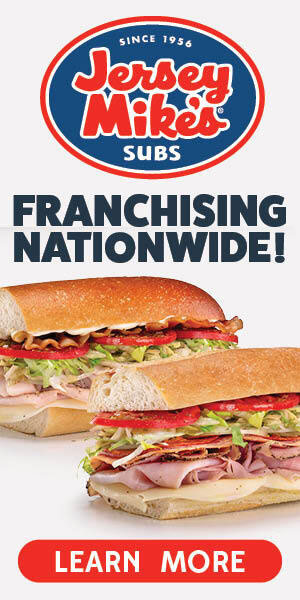Inflation Likely To Slow System Growth, Force Price Increases

We are finally entering a cycle of higher inflation expectations. Is that good for franchising? That’s not a trivial question as it can significantly affect unit performance and expansion decisions.
Following the last recession, the Fed was very concerned about deflation and used monetary policy to steer us away from a downward spiraling of the general price level of goods and services. It took years, but it worked.
We have been in a low inflationary environment for nearly a decade, and now attention is focused on the pace of rising levels of consumer and business prices. To understand how that will affect franchising, we first need to understand what the near-term inflation expectations are for both consumers and businesses, and the psychology of expectations surrounding further increases.
Both inflation that consumers expect and that businesses are experiencing are on the rise, but at different paces. The University of Michigan’s consumer sentiment survey and the Conference Board’s measure of consumer expectations both show about a 2.7 percent rise in inflation over the next year. While up from a post-recession low of 2.3 percent in 2017, this is still a subdued level by historical standards.
Businesses are also feeling higher levels of inflationary pressures and are starting from a lower level, but that is changing. Various business surveys are showing a more rapid rise in expected inflation, driven by rising producer prices from cyclical input price increases, tough tariff talk, a weak dollar, rising wage rates, and real estate costs that have risen steadily in recent years.
Of particular note are rising wage rates and real estate costs. According to NFIB survey data, the net share of firms expecting to raise wages over the next few months rose to 24 percent, the highest reading since 1989. Substantially influenced by wage rates, the Federal Reserve Bank of Atlanta business survey shows inflation rising to 2 percent in February after holding steady for much of the past 3 years. This puts it on a rate of change that is troubling because it is rising faster than consumer expectations.
Commercial real estate also has seen stronger percentage gains in recent years, squeezing business profits with, until recently, little ability to increase prices. At least real estate gains are unlikely to continue because of the significant shift in retail space demand as companies shrink footprints or exit some locations entirely, taking some of the business cost pressure off. In the next 5 years more than $1 trillion of commercial real estate will need to be refinanced. Lenders will be forced to pick winners and losers among properties, with little inclination to fund properties that are not cash flowing.
Inflationary squeeze play?
This brings us back to the comparison between consumer expectations and rising business costs. If business cost expectations are rising at a faster pace than consumer expectations, we will have a squeeze play for businesses: rising costs with a lack of pricing flexibility because of consumer expectations. Unlike past periods when the two tended to align in a matter of a year or two, the combination of years of subdued inflation and improved consumer buying technology (the “Amazon effect”) of the past few years has made it harder for businesses to raise prices.
Consumers have come to expect low prices, and technology has provided them with the ability to seek competing prices for just about everything. However, businesses simply can’t absorb rising costs without some ability to pass them along to consumers. Fortunately, the psychology of inflationary consumer expectations is showing signs of tolerating some price increases, and franchising should benefit.
Consumer sentiment, especially among Millennials, values time and customer care. While product/service pricing is a focus, if customer satisfaction is achieved, some higher pricing levels are tolerated.
Franchising puts a premium on creating a consistent level of customer expectations, achieving that through a combination of uniformity and marketing. I think we will begin seeing that franchise marketing departments, with their ability to address customer expectations, will lead price signaling across an entire sector, putting franchise brands in positions to price above non-franchise competitors because of their ability to project brand expectations.
As a by-product of brand marketing, we should see franchise systems testing price increases in different markets, just as the airlines have done for decades. (One airline will raise prices in a market and see if others follow.) If they do, a new price level is established. If others don’t, the price comes back, but often not all the way.
The extended period of relatively flat business costs is coming to an end. With rising business costs already happening and the pace rising, the ability to raise prices will be necessary for the long-term health of franchisees. Fortunately, the franchise business model, and in particular franchise marketing departments, are ready to take on that challenge and win.
Darrell Johnson is CEO of FRANdata, an independent research company supplying information and analysis for the franchising sector since 1989. He can be reached at 703-740-4700 or [email protected].
Share this Feature
Recommended Reading:
| ADVERTISE | SPONSORED CONTENT |
FRANCHISE TOPICS
- Multi-Unit Franchising
- Get Started in Franchising
- Franchise Growth
- Franchise Operations
- Open New Units
- Franchise Leadership
- Franchise Marketing
- Technology
- Franchise Law
- Franchise Awards
- Franchise Rankings
- Franchise Trends
- Franchise Development
- Featured Franchise Stories
| ADVERTISE | SPONSORED CONTENT |








 The franchise listed above are not related to or endorsed by Franchise Update or Franchise Update Media Group. We are not engaged in, supporting, or endorsing any specific franchise, business opportunity, company or individual. No statement in this site is to be construed as a recommendation. We encourage prospective franchise buyers to perform extensive due diligence when considering a franchise opportunity.
The franchise listed above are not related to or endorsed by Franchise Update or Franchise Update Media Group. We are not engaged in, supporting, or endorsing any specific franchise, business opportunity, company or individual. No statement in this site is to be construed as a recommendation. We encourage prospective franchise buyers to perform extensive due diligence when considering a franchise opportunity.